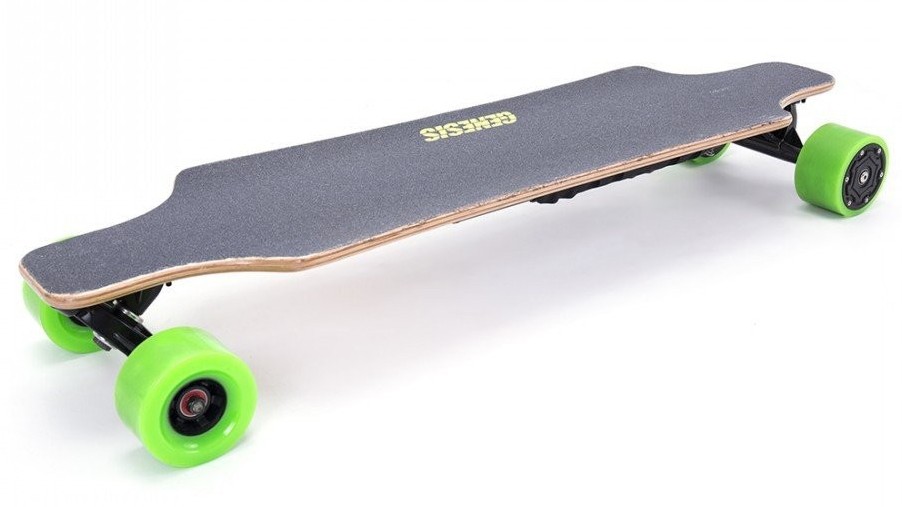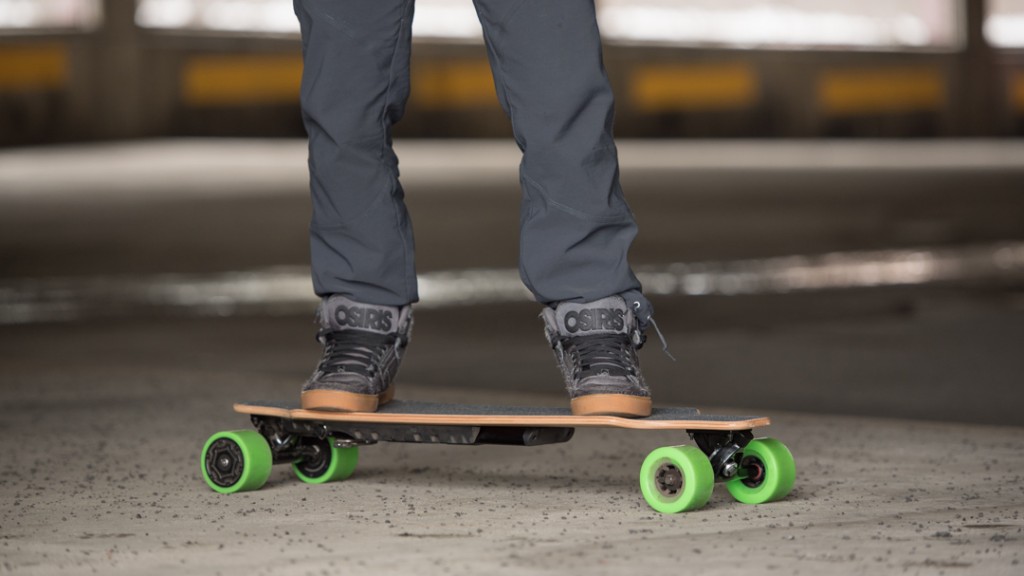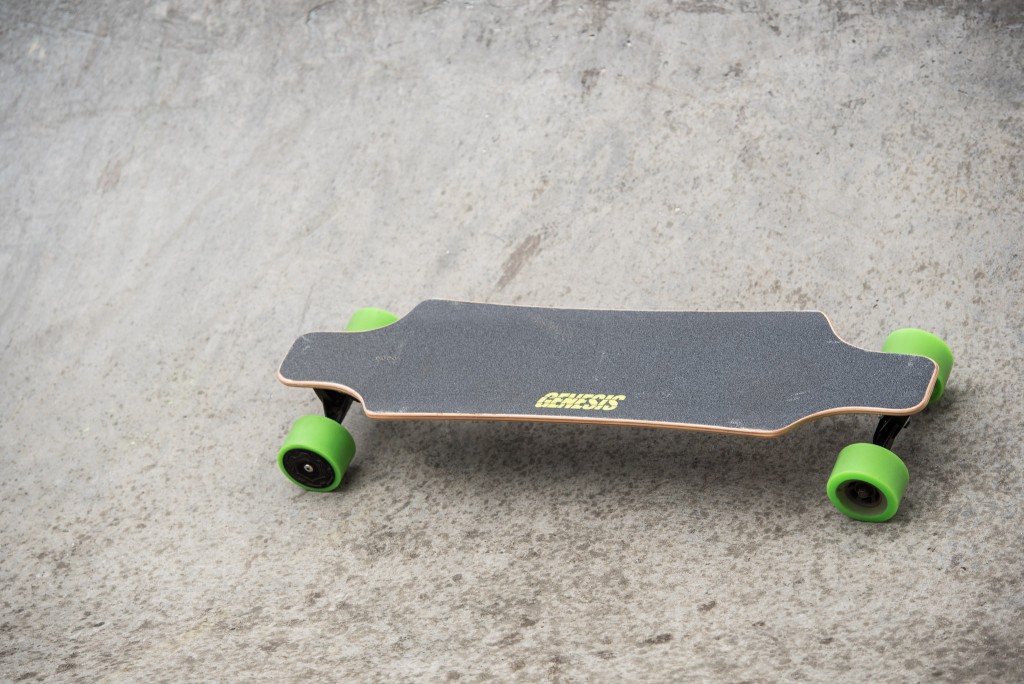Genesis Hellfire Review
Our Verdict
Our Analysis and Test Results
In addition to the aforementioned problems, we also ran into some severe remote connectivity issues with this board on the unit that we tested — not exactly inspiring confidence in this board and definitely excluding it as one of our go-to models. This board did below average in every metric except speed, where it did score well due to it possessing the 3rd highest top speed out of the pack.
Performance Comparison
As you can see, the Genesis fell a little short of the others, and earned one of the lowest scores in our test.
Speed
The most important metric of our testing process, this is the only area where the Genesis truly excelled, earning it a 6 out of 10. This board took home the bronze medal with its maximum speed of 21.34 mph, and only lagged the top scoring board by less than 1 mph. However, this does come with a caveat: We found that this board kept becoming unresponsive in our top speed tests, making it unresponsive, which in our opinion, was not something we would look for in an electric skateboard.
This model did much less well in our acceleration test, and was the slowest board to complete a 50' test section, starting with the board at a complete standstill.
Range
Showing a marked decline in performance relative to the speed test, the Genesis earned a meager 3 out of 10 in this metric. This was assessed with two distinct tests: overall range and charging time. Range was tested on flat terrain by an adult male rider, who noted when the board would no longer move, as well as what point the board slowed down significantly. You can see the maximum range of all the boards in the following chart.
The board only ran for about 53 minutes in our test, and had an effective range of maybe 5 miles, though it made it 8 before it completely died. The speed reduced to a crawl after 5 miles, close to a brisk walk speed, that then promptly reduced to a crawl. This board took about 3 hours to completely charge, slightly longer than average.
Ride
This metric consisted of basically how the board felt — how comfortable it was to ride, how it handled less than ideal pavement, bumps, or unexpected cracks, and whether or not we were really drawn to this board throughout testing. In the case of the Genesis, we weren't. It did slightly better than average at riding comfort and at handling bumpy terrain, but dealt with cracks in the road poorly. The board scored a 5 out of 10 overall in this metric, its poor score in handling cracks and its low appeal slightly buoyed up by it abilities at handling bumpy terrain and its riding comfort.
The low clearance gives this board a strong tendency to bottom out and scrape on the smallest cracks. It felt alright to ride, but all in all this board wasn't one that we would ever grab to ride for fun.
Hills
We tested how steep of a hill the board could make it up to determine scores for this metric. The Genesis did not fare well, earning a 2 out of 10. Essentially, if you live somewhere hilly, you should seriously consider a different model. This board struggled with about a 3.5% grade in our tests, a laughably tiny hill. At least in our tests, this board didn't even come close to its claimed hill climbing ability.
Build
This board's score improved for the build metric, but not by much, meriting a measly 3 out of 10. This board weighed in at 16.7 lbs, which isn't too bad, but it was so awkwardly weighted that it made it seem heavier when carrying it. The remote felt a little cheap, but the board was of about average responsiveness, when it was working.
As mentioned above, we were plagued with connectivity issues throughout testing, and had to send the board back to the manufacturer. However, they did replace the board at no cost and pay for shipping. Unfortunately, this process was a bit of a fiasco for us, as it proved very difficult to contact them via email to coordinate shipping it back. This model did not state that it had regenerative braking.
Braking
The Genesis continued a trend, earning a 2 out of 10 for its braking capabilities. We conducted two distinct tests for this metric: controlling descent speed on a hill, as well as stopping quickly on flat ground. We found the brakes to be essentially non-existent on any sort of slope, with the board continuing to accelerate down a 5% grade with the brakes fully engaged. The braking was smooth on flat ground, but it had some of the longest stopping distances of the group.
Value
While this board does have an attractively low price, it also corresponds to an exceedingly low score. You get what you pay for — not much of a bargain.
Conclusion
While this board does have a lower retail value than some of its competition, we find it hard to recommend with its paltry performance score. While the price is lower, it still would be a decent investment for most people, and we feel that many would be disappointed in this board's performance. We would recommend spending a little more to get a substantially higher performing model.







